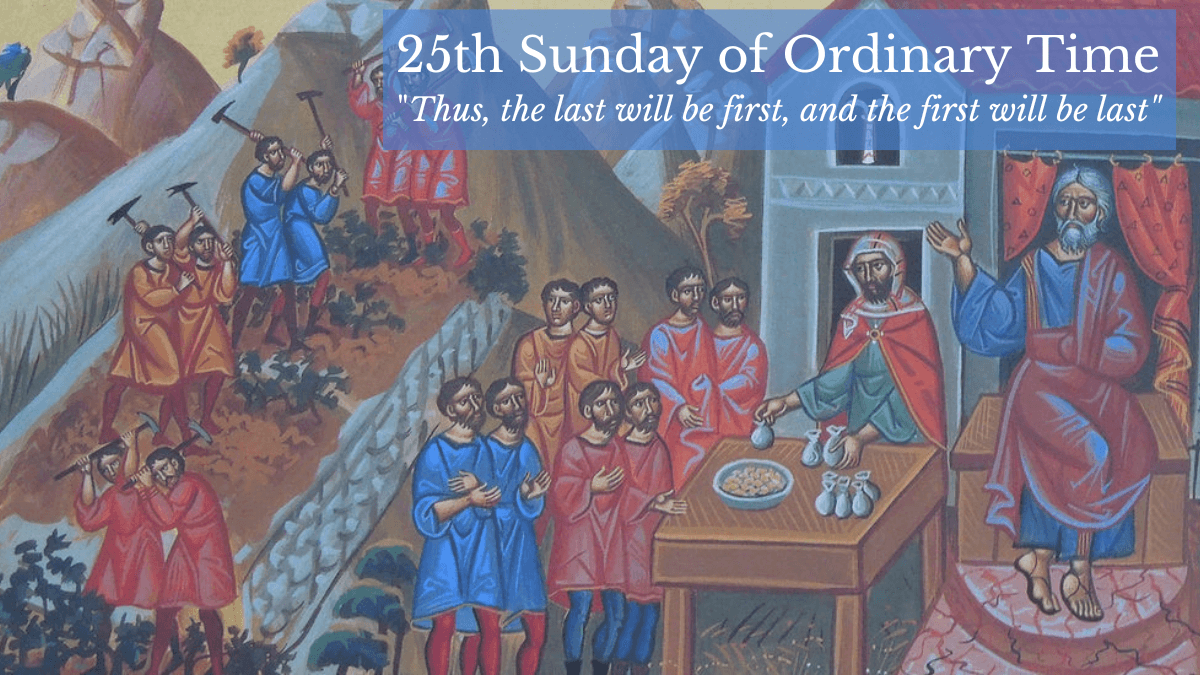On the Back Porch

25th Sunday of Ordinary Time, Year A

What We Celebrate
This is one of those gospel parables that sometimes does not sit right with us. I think we share in one or all three of the basic complaints by the first set of workers, the ones who worked all day. (1) They assumed they’d be paid more for more work. (2) The others were made equal to us and we worked harder than the others. (3) This was all a burden in the first place. It isn’t fair.
Robert Smith summarizes our reaction to the parable: “It is simply a fact that people regularly understand and appreciate God’s strange calculus of grace as applied to themselves but fear and resent seeing it applied to others.” In a similar way, the parable of the unforgiving servant (last week’s gospel) suggested a great appreciation for God forgiving all of my sins; but a desire that God (and I) should punish all those who had sinned against me.
There is a lot more to this gospel. Sit with it for a moment on the back porch.
Full Text of the Sunday Readings
Detailed Commentary on the Gospel
Image Credit: Laborers in the Vineyard, icon | Public Domain
Grace
When God reveals who he is to Moses in Exodus 34:6-7, one of the words he uses to describe himself is gracious, or in Hebrew, khanun. “Yahweh, Yahweh, compassionate and gracious, slow to anger, overflowing with loyal-love and faithfulness.” This verse is the most quoted and reused verse in the Hebrew Bible.
What does it mean to say that the God of the Bible is gracious? In this video, we’ll look at the Hebrew words for grace and understand it to be a rich concept that has profound implications for how we see God. When we look to the biblical meaning of grace and understand God as gracious, we see a God who loves to give generous gifts to undeserving people. The Golden Calf Incident is perhaps the best example of God showing undeserved favor in Exodus 34, the context from which the first description of God’s character is recorded in the Hebrew Bible.
The people break the first two terms of the covenant—no other gods and no idols—right after making them. God tells Moses that he is done with these people, that they are going to keep doing this. He is going to leave them and let them go toward the promised land without his presence.
Moses first shatters the tablets of the covenant (and makes the people drink the powdery ash!), and then he ascends to Yahweh for five rounds of intercession and conversation.
At one point Moses says, “If your presence doesn’t go with us, do not bring us up from this place [Mount Sinai], for how then can I know that I have found favor in your eyes, I and your people? Isn’t it by your going with us, so that I and your people are marked as distinct from all other people on the face of the land?” (Exodus 33:15-16).
God responds, “I will do this thing that you have asked, because you have found favor in my eyes” (Exodus 33:17).
So God ends up recommitting to the people and renewing the covenant they just broke, and he appears to Moses saying that he is “compassionate and khanun…” (Exodus 34:6). He is the giver of generous favor to people, even when they deserve the opposite.
This character trait of God from Exodus 32-34 becomes foundational for all of God’s future interactions with Israel.